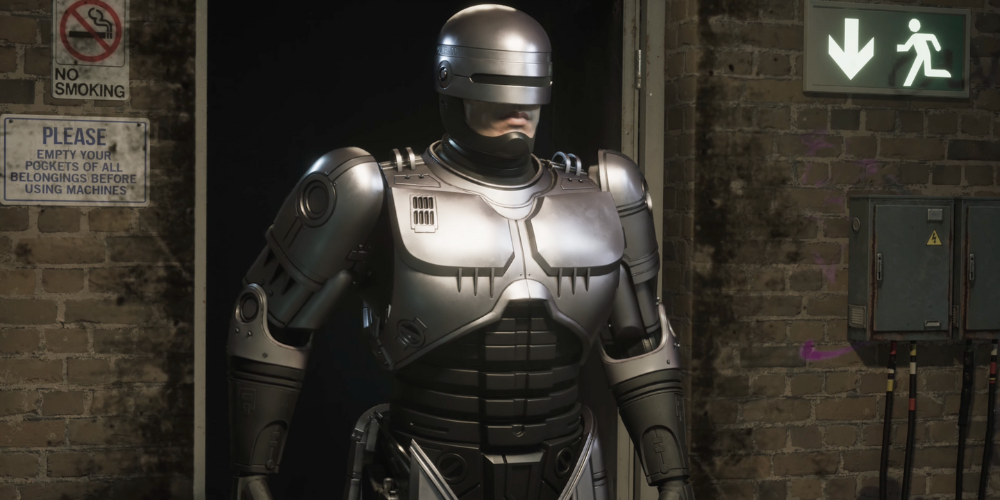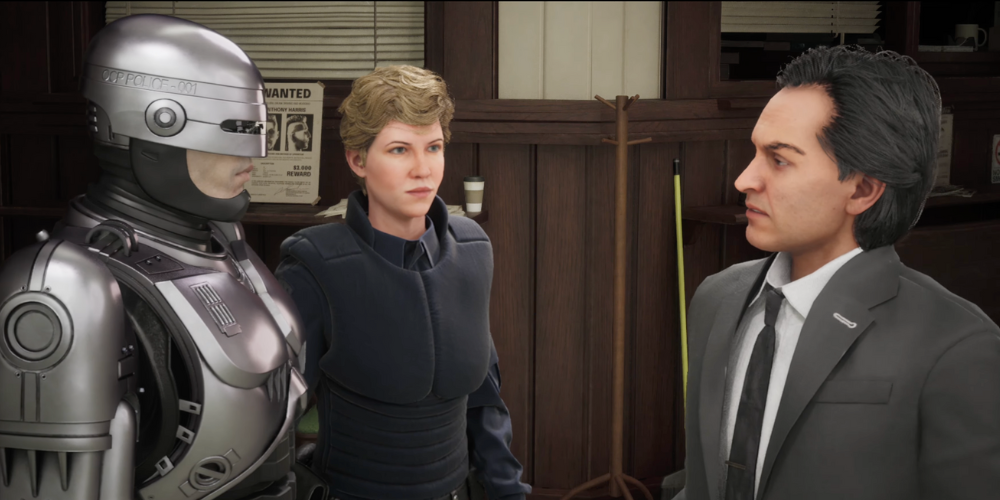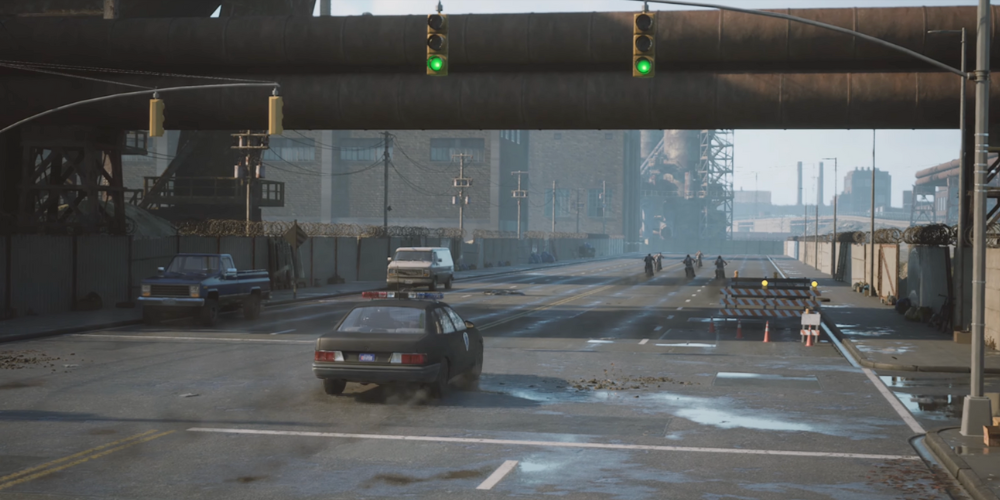How RoboCop: Rogue City Captures the Essence of the Classic Film Series
29 Apr 2024

The essence of the iconic RoboCop film series continues to resonate with audiences decades after its debut, offering a unique blend of action, social commentary, and a splash of science fiction. Taito's upcoming video game, RoboCop: Rogue City, aims to encapsulate these themes while pushing the boundaries of interactive entertainment. This article delves into the myriad ways that RoboCop: Rogue City remains faithful to its celluloid roots, capturing the essence of its universe through gameplay, narrative depth, aesthetic continuity, and technological integration, letting players step into the cybernetic shoes of the titular law enforcer.
Defining RoboCop's World: A Faithful Used Future
The original RoboCop movies portrayed a dystopian future through a “used future” aesthetic, where technology, despite being advanced, felt lived-in and purposefully functional rather than pristine. RoboCop: Rogue City retains this visual texture, immersing players in a world that feels tangible and worn. The game developers have meticulously designed environments that hark back to the gritty, neon-lit streets of old Detroit, complete with retro-futuristic architecture and rampant urban decay. This continuity not only appeals to fans' nostalgia but also provides a seamless backdrop that enhances the game's atmosphere.
Engaging Narrative: Echoes of the Original Themes

Central to the success of the RoboCop films was their ability to weave thought-provoking narratives around issues like corporate greed, identity, and human augmentation. RoboCop: Rogue City extends these themes, infusing its storyline with rich new subplots that explore the societal implications of technology and power. The game presents players with complex ethical decisions, driving home the point that their choices have weight, just as Alex Murphy's transformation into RoboCop did. By intertwining personal drama with larger socio-political issues, the game achieves a narrative depth that resonates well with the legacy of its predecessors.
Character Development and Progression
In RoboCop: Rogue City, players inhabit the role of Alex Murphy/RoboCop, whose character is shaped through player decisions and interactions, reflecting the enduring human element amidst his mechanical augmentation. This character-driven approach allows for a deeper connection and empathy from the player, echoing the poignant journey of Murphy in the films as he grapples with his humanity. Character progression isn't just about gaining new abilities or weapons, but also about understanding and deciding the kind of justice RoboCop will administer—whether to uphold the law rigidly or to seek a balance between justice and vengeance.
Authentic Sound Design and Voice Acting

From the iconic clanking sound of RoboCop's steps to the memorable musical score, audio was a vital component in cementing the atmosphere of the original films. RoboCop: Rogue City's sound design follows suit, utilizing a mix of original and newly composed audio elements that pay homage to the films’ auditory signatures. Moreover, the game features voice actors who capture the essence of the characters they portray, including callbacks to voices from the original cast, providing an auditory link to the past while ensuring emotional delivery that resonates with the present audience.
Technological Augmentation and Gameplay Mechanics
In the RoboCop films, the protagonist's existence is heavily intertwined with his cybernetic enhancements, granting him superhuman capabilities alongside his human vulnerability. In RoboCop: Rogue City, this dichotomy is vividly realized through the game's integration of robust technological augmentations that fundamentally shape gameplay mechanics. As gamers immerse themselves in the game, they can utilize RoboCop’s iconic weapons, such as the Auto 9 pistol, as well as less familiar but equally formidable armaments developed specifically for the game.
.png)
The developers have cleverly incorporated a system that allows for upgrades to these weapons and RoboCop's cybernetic framework, making each player's journey through the game unique. Upgrades might include enhanced targeting systems, increased durability or agility, and even new forms of non-lethal options to augment RoboCop’s capabilities to subdue criminals without causing fatalities. This upgrade system not only mirrors RoboCop’s evolution in the movies—continually being modified to better serve public safety—but also invites players to think strategically about how to tackle different missions, whether they prioritize stealth, brute force, or diplomacy.
Further deepening the gameplay experience, the game introduces a variety of tactical challenges and enemy encounters that require players to continuously adapt their approach. Enemies in the game have their own intelligence and adaptability, forcing players to evolve and think critically about how to use RoboCop’s capabilities most effectively. This dynamic element of gameplay ensures that no two playthroughs are the same, offering fresh and engaging experiences for players each time.
Multi-Threaded Plotlines and Open-Ended Scenarios
.png)
RoboCop: Rogue City takes advantage of modern gaming technologies to provide a narrative experience that is rich, varied, and reflective of the complex themes seen in the RoboCop franchise. By employing non-linear storytelling, the game diverges from traditional linear narratives to offer players a web of interconnected story arcs that intersect at various points in the game, depending on choices made by the player. This method allows for a more personal and immersive gaming experience where decisions really matter.
Players are furnished with the ability to influence major plot developments, which can lead to drastically different endings. For instance, choosing to uphold strict adherence to the law might preserve RoboCop's role as a defender of order but at personal and social costs that become apparent as the plot unfolds. Alternatively, exhibiting leniency or questioning the status quo might lead to unforeseen alliances and plot twists. This freedom not only endows players with significant control over how the story develops, but it also presents multiple ethical quandaries, mirroring the film’s exploration of justice, free will, and humanity.
.png)
This multi-threaded, player-driven approach to storytelling not only increases the replay value of the game but also invites deeper engagement with its thematic elements. Every decision can lead to new insights about the world and RoboCop himself, inviting players to explore every crevice of its narrative complexity. Through challenging players to confront and ponder ethical dilemmas, RoboCop: Rogue City remains true to the spirit of the original films while advancing a game narrative that is compelling and thought-provoking.
Conclusion: A Loving Tribute and a Bold Step Forward
RoboCop: Rogue City represents more than just another entry in the franchise; it is a carefully crafted experience that respects its origins while forging its own identity. From the faithful recreation of Old Detroit to the thought-provoking dilemmas posed throughout the game, it stands as a tribute to the film series that inspired it and a testament to how classic narratives can be transformed into interactive experiences. Through this combination of old and new, RoboCop: Rogue City captures the essence of what made the original RoboCop films beloved, bringing it to a whole new generation of gamers and cinephiles alike.







